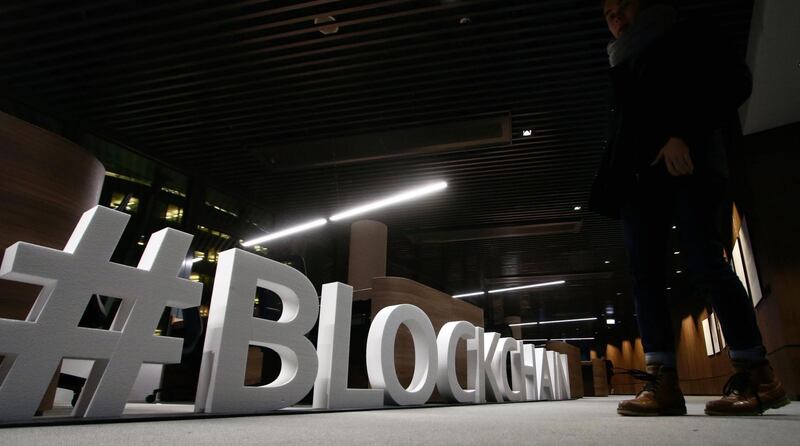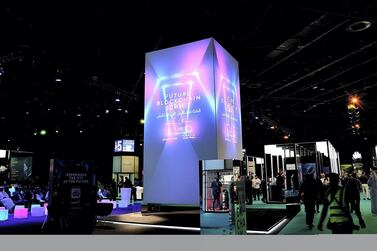Blockchain - the technology behind cryptocurrencies such as Bitcoin - could go far beyond being a mere digitial identifier in financial transactions.
Industry experts say Blockchain is all set to disrupt various unconventional fields, ranging from tackling forced labour to eliminating hunger in refugees camps.
Here, The National takes a look at how far this new technology might go.
Fighting forced-labour
Coca-Cola and the US government are pursuing a project using Blockchain to create a secure registry for workers that will help solve the problem of forced-labour globally. This will also archive job contracts using Blockchain’s digital validation abilities.
“This will streamline the verification process related to labour policies within the company’s supply chain,” said Brent Wilton, Coca-Cola’s global head of workplace rights, adding that the technology will also keep a tab on legitimate work-hours and whether companies are complying with the agreed employment agreement contract or not.
Almost 25 million people globally work in forced-labour situations and nearly half of them are in the Asia-Pacific region, according to the International Labour Organisation.
Leading to a healthier tomorrow
Besides adding transparency, Blockchain applications can help predict the future demands of medicines and ensure the authentication of medical licences.
“We did a project in health care where Blockchain was enabled to track the medicines right from the manufacturing stage to reaching the hands of consumers. Customers can check if medicines were tampered with at any stage and how they were stored during the transit,” said Marwan Bindalmook, senior vice president of ICT solutions at telco Du.
Blockchain can help open medical platforms such as Bloodchain – world’s first open social blood bank that receives 112.5 million donations a year – in detecting the demand in different geographies and even donors can keep a track of the beneficiaries, added Pierre-Marie Heller, board advisor at Bloodchain.
Cracking counterfeit artworks
Once any information or record comes on the Blockchain, it cannot be edited or altered and its authenticity is assured. Industry experts say Blockchain could prove handy when it comes to ascertain whether any art piece is genuine.
“According to the FBI, around 10 per cent of the $60 billion or [its equivalent] works of art that are traded each year are fraudulent, ”said Robert Norton, founder and chief executive of independent art verifier Verisart.
Blockchain is a trusted archive and it could offer a permanent record of history – right from the discovery to the current ownership, he added.
Eliminating hunger
Using Blockchain, a UN body transferred money with just a click to beneficiaries by creating accounts for them and giving them a 15-character number, which is their digital identity.
“During our work in Jordan with Syrian refugee camps in 2016, we used a service based on Blockchain that scanned the eyes of the beneficiaries, enabling them to securely pay [using the transferred funds] at supermarkets,” said Abdel Yahyia, director at the UN’s World Food Programme.
Blockchain-enabled projects have helped 106,000 refugees in camps in places such as Azraq and Za’atari in Jordan, added Mr Yahyia.








